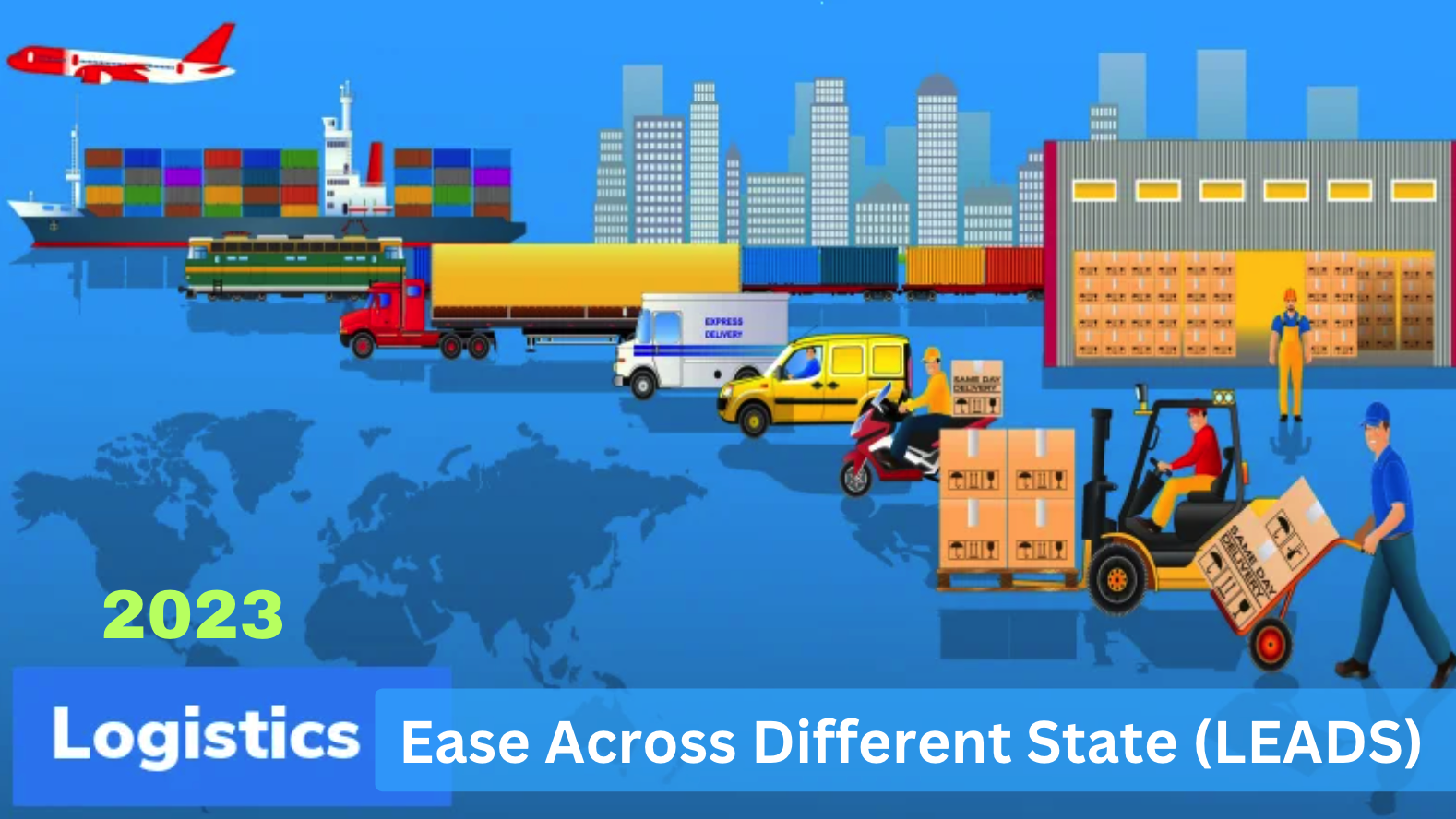How Indian states fare on logistics: What the Centre’s latest survey says (Indian Express)

- 18 Dec 2023
Why is it in the News?
The Logistics Ease Across Different States (LEADS) perception survey, released by the Union Ministry of Commerce and Industry, flags some challenges in logistics and states performance on a regional basis.
Key highlights of the Report:
- Only five states namely Gujarat, Tamil Nadu, Karnataka, Maharashtra and Telangana continue to make up 70 per cent of exports. Over the years this has caused a widening gap in income and job generation between the landlocked states and coastal states.
- Performance of Landlocked States: Bihar, Himachal Pradesh, Jharkhand, and Chhattisgarh have received low perception scores on these counts while user satisfaction in Telangana, Uttar Pradesh, and Punjab improved.
- Notably, Jharkhand saw below-average scores across all indicators, encompassing infrastructure, services, and operating and regulatory categories.
- Performance of North-East Group: In Manipur, user satisfaction levels for the state are generally lower than the average of the North-East Group for all indicators across pillars.
- The data indicated relatively high stress in the ‘easy of entry’ category.
- While Assam performed better than average on most counts, the user performance assessment was also below the average of North-East Group in the case of Meghalaya.
- Odisha, West Bengal Lag Among Coastal States: Indian coastal states including Andhra Pradesh, Goa, Gujarat, Karnataka, Kerala, Maharashtra, Odisha, Tamil Nadu and West Bengal account for 75 per cent of total exports from the country and have fared well in logistics historically.
- Gujarat accounts for 33% followed by Maharashtra with 16% and Tamil Nadu with 9% share.
- However, the survey showed that Goa, Odisha and West Bengal continue to perform below the average among coastal states.
- In the case of Odisha, the survey said that there has been an improvement in the overall perception of the state’s logistics ecosystem since 2019 but despite this, the indicator averages for this year have remained below the Coastal Group average.
What is Logistics Ease Across Different States (LEADS)?
- Initiated in 2018 by the Department for Promotion of Industry and Internal Trade (DPIIT), Ministry of Commerce and Industry, LEADS draws inspiration from the World Bank's Logistics Performance Index (LPI).
- Unlike the LPI, which relies solely on perception-based surveys, LEADS incorporates both perception and objectivity, thereby enhancing the robustness and comprehensiveness of its evaluation.
- LEADS focuses on three pivotal pillars:
- Logistics Infrastructure
- Logistics Services, and
- Operating and Regulatory Environment.
- The recently released 5th edition, LEADS 2023, illuminates the evolving performance of states and union territories across these pillars.
- It provides valuable insights into the enhancement of logistics performance at the State/UT level, emphasizing an augmented stakeholder perception and the impact of various reforms.
- This report not only signals a positive transformation in the performance of states but also empowers State/UT Governments with region-specific insights, facilitating informed decision-making and comprehensive growth.
Importance of the LEADS Initiative:
- The LEADS report serves as a catalyst in fostering healthy competition among States/UTs, driving improvements in logistics performance.
- Notably, 23 States/UTs have aligned their State Logistics Policies with the National Logistics Policy, while 16 have accorded industry status to logistics, collectively contributing to the elevation of India's global positioning in the logistics ecosystem.
- This initiative significantly enhances the overall competitiveness of India's logistics sector, as evidenced by the country's ascent by six places to the 38th position in the 2023 Logistics Performance Index.
- Integral to this success are digital reforms like PM GatiShakti, Logistics Data Bank, Unified Logistics Interface Platform (ULIP), and GST, which have propelled India's improved global ranking.
- Developed collaboratively and through a consultative approach, the LEADS report introduces objectivity in assessing both infrastructure development and process-related reforms.
